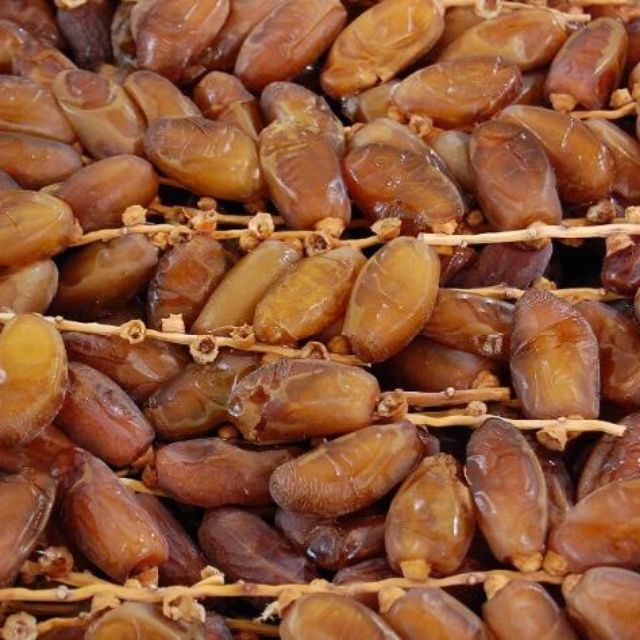Kurma Bertangkai: Date Farming and Its Environmental Impacts

Introduction
Kurma Bertangkai, also known as date farming, is a significant agricultural practice that involves the cultivation and production of dates. In this blog post, we will delve into the world of date farming, its environmental impacts, and the importance of sustainable practices in mitigating potential harm to the environment. Join us as we uncover the environmental aspects of Kurma Bertangkai.
Date Farming: An Overview
Introduction to Date Farming
Date farming is the process of cultivating and harvesting dates, which are the fruit of the date palm tree (Phoenix dactylifera). Date palms are primarily grown in arid and semi-arid regions, as they require hot and dry climates to thrive. The cultivation of dates involves planting date palm trees, nurturing them, and ensuring optimal conditions for fruit production.
Kurma Bertangkai: Date Farming in Practice
Kurma Bertangkai, or date farming, is a common practice in regions such as the Middle East, North Africa, and parts of Asia. These areas provide suitable climatic conditions for date palm cultivation. The process of date farming involves several stages, including:
1. Planting: Date palm trees are planted in rows, typically in sandy or loamy soils. The trees require a significant amount of space to grow and mature.
2. Irrigation: Date palm trees require regular and consistent irrigation to survive. In some cases, traditional irrigation methods such as falaj systems are used, which involve the diversion of water from natural sources to the date palm plantations.
3. Pollination: Date palms require proper pollination to produce fruit. This process can be achieved through natural pollination by wind or through manual pollination, where male flowers are transferred to female flowers.
4. Harvesting: Date fruits are harvested when they reach their desired ripeness. This is typically done by hand and requires skilled laborers who can climb the tall date palm trees and carefully remove the fruits.
Environmental Impacts of Date Farming
Water Consumption
One of the significant environmental impacts of date farming is high water consumption. Date palm trees require a substantial amount of water to survive in arid environments. In regions where water resources are limited, extensive irrigation for date farming can put a strain on local water supplies. It is crucial for date farmers to adopt sustainable irrigation methods and efficient water management practices to minimize water usage and promote water conservation.
Soil Degradation
Continuous date farming without proper soil management practices can lead to soil degradation. Date palm trees have deep root systems that can extract nutrients and moisture from the soil. Without proper soil conservation techniques such as crop rotation, the soil’s fertility can decline over time, affecting the overall productivity of the land. Implementing sustainable soil management practices, such as organic fertilization and mulching, can help mitigate soil degradation and maintain soil health.
Biodiversity Impact
Date farming can have both positive and negative impacts on biodiversity. Date palm plantations provide habitat for certain species of birds and insects. However, the conversion of natural habitats to date palm plantations can lead to the loss of native plant and animal species. Additionally, the use of pesticides and fertilizers in date farming can have adverse effects on local ecosystems and biodiversity. It is essential for date farmers to adopt integrated pest management practices and minimize the use of harmful chemicals to preserve biodiversity.
Climate Change
Climate change can have significant implications for date farming. Date palm trees are sensitive to temperature fluctuations, and changes in climatic patterns can affect their growth and productivity. Rising temperatures, shifting rainfall patterns, and increased frequency of extreme weather events can pose challenges to date farmers. Implementing climate-resilient farming practices, such as proper irrigation management and shade provision, can help date farmers adapt to changing climatic conditions.
Conclusion
Kurma Bertangkai, or date farming, is an important agricultural practice that provides a valuable food source in many regions. However, it is crucial to recognize and address the environmental impacts associated with date farming. High water consumption, soil degradation, biodiversity loss, and climate change are some of the key environmental concerns. By adopting sustainable practices such as efficient water management, soil conservation techniques, biodiversity preservation, and climate-resilient farming methods, the negative environmental impacts of date farming can be mitigated. It is essential for date farmers, policymakers, and consumers to prioritize sustainable approaches to ensure the long-term viability of date farming while minimizing harm to the environment.
Key Highlights:
– Kurma Bertangkai refers to date farming, which involves the cultivation and production of dates.
– Date farming involves planting date palm trees, providing irrigation, pollination, and harvesting the fruits.
— Date farming requires significant water consumption, which can strain local water resources in arid regions.
– Improper soil management practices in date farming can lead to soil degradation and reduced fertility.
– Date farming can impact biodiversity through habitat conversion and the use of pesticides and fertilizers.
– Climate change poses challenges to date farming due to temperature fluctuations and changing weather patterns.
– Sustainable practices such as efficient water management, soil conservation, biodiversity preservation, and climate-resilient farming can help mitigate the environmental impacts of date farming.
Understanding the environmental impacts of Kurma Bertangkai is crucial for promoting sustainable date farming practices. By implementing responsible farming techniques, date farmers can minimize their ecological footprint and contribute to a more environmentally conscious agricultural sector. It is essential for stakeholders to collaborate and prioritize sustainable approaches to ensure the long-term viability of date farming while preserving the delicate balance of the surrounding ecosystems.